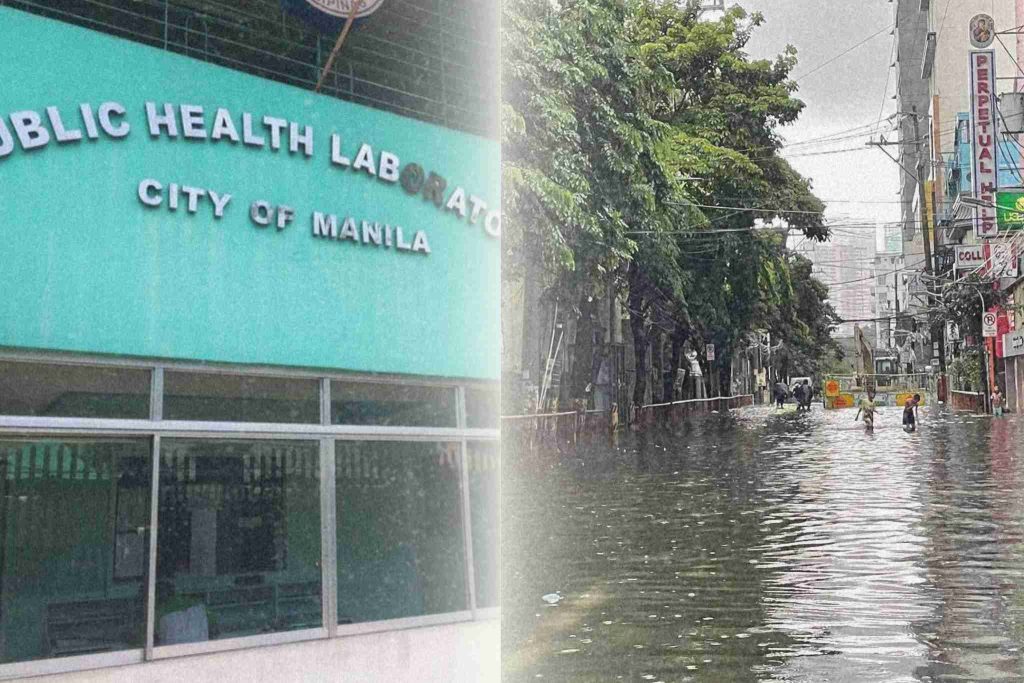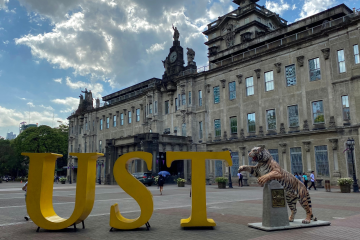
UST employees’ unions have urged the Manila city government for another deadline extension of its health permit requirement from July 31 to Aug. 31, saying a “substantial number” of their members were unable to comply due to the recent typhoon.
In a letter addressed to Manila Mayor Honey Lacuna dated July 26, Organisasyon ng Nagkakaisang Empleyado ng UST (ONE-UST), a coalition of three labor groups in the University, asked for an additional month for workers to obtain a sanitary permit, citing the impact of super typhoon “Carina” that flooded different areas in the capital and nearby provinces.
“In light of the recent devastation caused by Typhoon Catrina, which has resulted in severe flooding in Metro Manila and nearby provinces, many of our workers are still facing significant challenges. Consequently, a substantial number of our members have been unable to comply with the health permit requirements within the extended timeframe,” ONE-UST’s letter, a copy of which was obtained by The Flame, read.
“Given these extraordinary circumstances, we respectfully request an additional extension of the deadline to August 31, 2024. This will allow our workers the necessary time to recover from the effects of the typhoon and fulfill the health permit requirements,” it added.
The letter was signed by UST Faculty Union president Emerito Gonzales, Samahang Manggagawa-UST president Dan Paul Patricio and Ugnayan ng Nagkakaisang Manggagawa-UST Hospital president Donell John Siazon.
Under a memorandum of the Office of the Vice Rector for Finance (OVRF) issued in April, all teaching and non-teaching personnel in UST are required to secure a health certificate in compliance with Ordinance 8793.
Employees have to pay P625 to procure a health permit, which must be renewed annually, during which they must provide a valid ID, stool and urine samples, a filled-out drug test form and biometrics to the Manila Health Department.
Some members of both teaching and non-teaching staff have criticized the requirement, citing its “costly” medical procedures and the “below average” public facilities. A number of workers are also against the yearly submission of stool samples, describing it as unnecessary and invasive.
In the same letter, ONE-UST reiterated its request for Lacuna to allow the use of the University’s facilities for the collection and testing of specimens and to set up a satellite laboratory at the University.
“Conducting these procedures on-campus will significantly reduce costs and logistical burdens for our workers while ensuring they have access to better facilities,” the labor unions said.
In June, the mayor’s office granted the coalition’s request to move the health certificate deadline from May 31 to July 31.
Data obtained by The Flame from the UST Santo Tomas e-Service Providers showed that 1,701 out of 3,261 University employees or 52.16% have not yet complied with the health permit requirement as of July 29. More than 1,400 of the employees who have yet to secure the permit are faculty members.
READ: Still no health permit for the majority of UST employees two days before deadline
Three offices to handle compliance
Citing communication from the Manila local government, Office of the Secretary General Executive Assistant Emmanuel Batulan said the July 31 deadline is final.
“We were made aware of this (health permit requirement) as early as April. Perhaps it (deadline extension) can be lodged to OVRAA (Office of the Vice Rector for Academic Affairs), Health Service and OVRF,” Batulan told The Flame.
Batulan said the three offices are the ones designated to directly communicate with the city government on health permit matters.
“There’s always three offices that are expected to comply with the latest regulations… The faculty union has been informing us about concerns, which we, the Office of the Secretary General, would relay to OVRF, and OVRF would discuss these concerns with Manila LGU (local government unit). So, eventually, we get the response, and we would relay it to [the unions],” he said.
The labor coalition expressed readiness to engage in dialogues to find the most effective solution for the concerns of its members.
The Manila city government ordinance states that those who fail to obtain a sanitary permit shall be slapped with a fine of not more than P3,000 for the first offense and not more than P5,000 and the revocation of their health certificate for the second offense. F – with reports from Ma. Alyanna Selda



